News
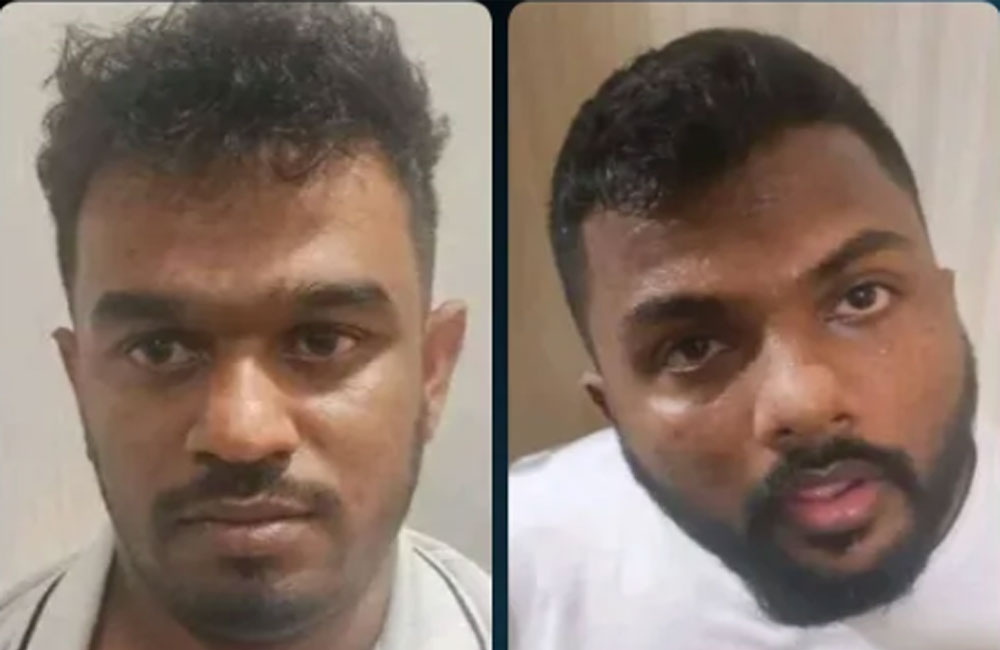
Backhoe Saman, Thambili Lahiru In Court Over Red Notice
Two organized crime suspects, known as Backhoe Saman and Thambili Lahiru, who are currently in detention, were presented before the Walasmulla Magistrate’s Court today (17).
The suspects are being held under the Prevention of Terrorism Act (PTA) and are currently in the custody of the Western Province North Crimes Investigation Division.
According to police, the court appearance was related to a red notice issued for their arrest, with authorities required to present details regarding the warrant.
Both individuals were among a group of five organized crime suspects, including Kehelbaddara Padme, who were recently apprehended in Indonesia and brought back to Sri Lanka.
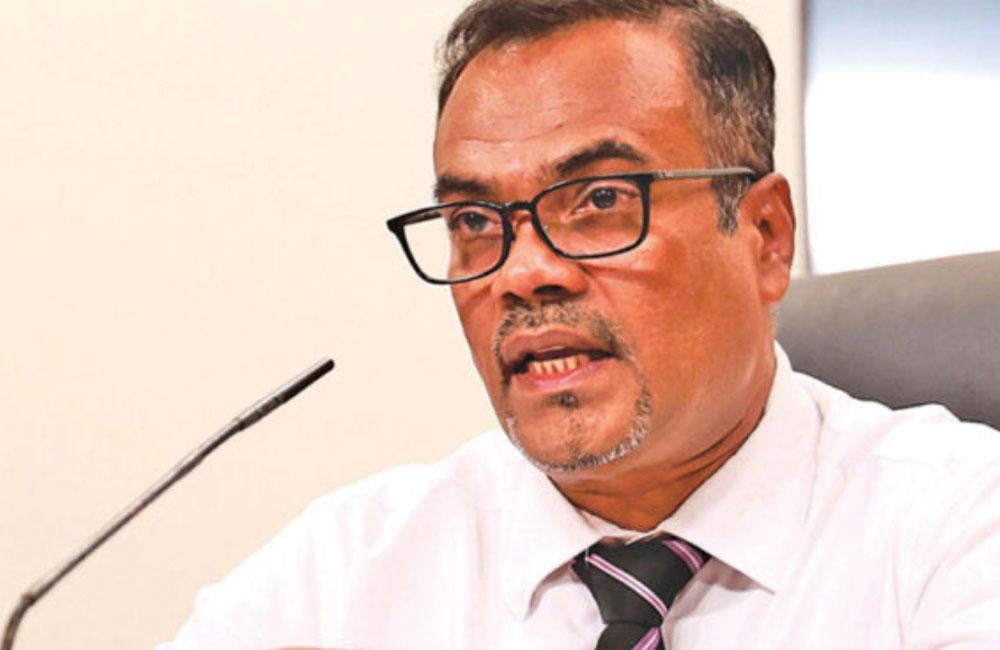
Sri Lanka eyes 6% economic growth in 2026 - Minister Anil Jayantha
Sri Lanka is aiming to boost its economic growth to up to 6% in 2026, partly through record government capital expenditure, though delays in passing the budget could drag on its performance this year, Labour Minister and Economic Development Deputy Minister Anil Jayantha Fernando said on Monday (15).
Fernando said Sri Lankans and investors should be “hopeful” as the island nation climbs out of the economic crisis that hit in 2022, its worst since independence.
Sri Lanka recorded economic growth of 5% in 2024. That would likely slow to 4-4.5% this year, as delays in passing the budget slowed government spending, Fernando told Reuters in an interview.
“Next year… we will need to go for 5-6% growth. We will aim for that,” he said. “In the long run, after five years, we target to maintain an average GDP growth that emerging countries are maintaining. That is around 6-7%.”
The government planned to increase its capital expenditure by 8% in 2026 to a record Rs. 1.4 trillion ($ 4.64 billion), he added.
The International Monetary Fund (IMF), which bailed out Sri Lanka in March 2023, has predicted GDP growth of 3.3% this year and 5.2% for 2026. The economy grew 4.9% year-on-year in the second quarter of 2025, official data showed on Monday.
“We should not really exaggerate (and say) that next year everything would be fantastic and your livelihood would be totally changed, but we are telling the people and the world and investors, be hopeful,” Fernando said.
The government projections will likely feature in the upcoming budget, Fernando added, and have not been previously reported.
Budget delay drags
Sri Lanka allocated Rs. 1.315 trillion for capital expenditure in 2025, but spending was delayed after the budget was approved later than usual in March by the new government of President Anura Kumara Dissanayake.
The country typically presents its budget to parliament in November, with approval in December, a cycle the government plans to resume this year.
Fernando said government ministries hesitated to initiate procurement without formal approval this year. Spending picked up in the second quarter, but remains below target, making it difficult to achieve 5% GDP growth unless the informal economy compensates.
At the end of July, only a fifth of the budgeted money had been spent.
"Next year will be really fine, because we will adhere to the normal budget cycle,” he said. “We have learned something because we have never been in government.”
Fernando said the country could also more than double foreign direct investment to more than $ 2 billion in 2026, driven by investments from China, India and the UAE.
He said Sri Lanka was prioritising strategic foreign loans tied to large-scale projects and technology transfer, rather than market-based borrowing to boost reserves or fund existing initiatives.
The country, burdened by high debt levels, is working within an IMF framework to reduce debt to 95% of GDP by 2032, with a target of 80-85% to preserve borrowing space. This year’s target is 109.6%.
Fernando said borrowing will be reserved for critical investments, while the government focuses on boosting reserves through export diversification and tourism.
Crucial remittances from expatriates have already topped $ 5.2 billion in the first eight months of the year and could hit a record $ 8 billion, compared with $ 6.57 billion last year, he added. The previous high was $ 7.24 billion in 2016.
(Reuters)

No water cut
The planned 9-hour water cut in several areas of Colombo tomorrow (18th) has been cancelled.
The National Water Supply and Drainage Board (NWSDB) announced this in a statement.
Earlier, the board had said that water supply from the Ambatale Water Treatment Plant would be disrupted due to a power cut at the main pump station supplying the plant.
However, the latest announcement confirms that the water cut will no longer take place in the following areas:
Colombo 01 to 15
Battaramulla, Pelawatta, Hokandara, Koswatta, Talawatugoda, Kotte, Rajagiriya, Mirihana, Madivela, Nugegoda, Nawala, Kolonnawa, IDH, Kotikawatta, Angoda, Wellampitiya, Orugodawatta, Mulleriyawa, Maharagama, Boralesgamuwa, Dehiwala, Ratmalana, Moratuwa
For more information, contact the call center at 1939.

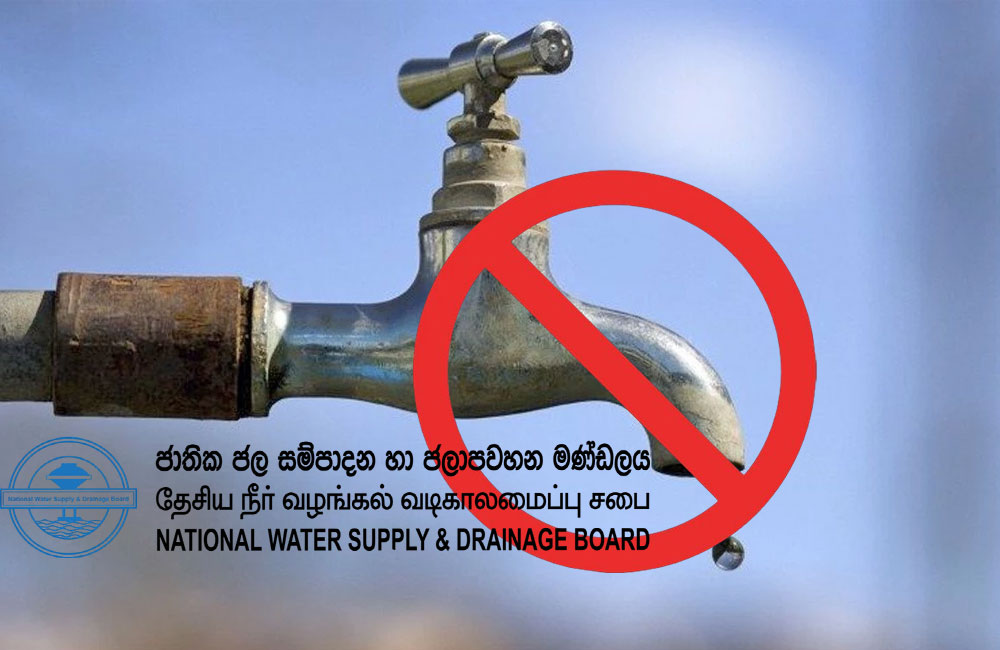
Water Supply Cut for Several Areas
The National Water Supply and Drainage Board (NWSDB) has announced that water supply will be suspended for several areas in Colombo tomorrow (18th) for a duration of nine hours.
This interruption is due to a power outage affecting the main pump supplying water to the Ambathale Water Treatment Plant. Consequently, the plant will be unable to provide water during this period.
Water supply will be suspended from 10:00 a.m. to 7:00 p.m. in areas of Colombo 01 to 15. Additionally, supply will be interrupted in the following areas: Battaramulla, Pelawatta, Hokandara, Koswatta, Talawatugoda, Kotte, Rajagiriya, Mirihana, Madivela, Nugegoda, Nawala, Kolonnawa, IDH, Kotikawatta, Angoda, Wellampitiya, Orugodawatta, Maharagama, Borelasgamuwa, Dehiwala, Ratmalana, and Moratuwa.
The NWSDB expresses regret for the inconvenience caused to water consumers due to this disruption and requests their understanding.
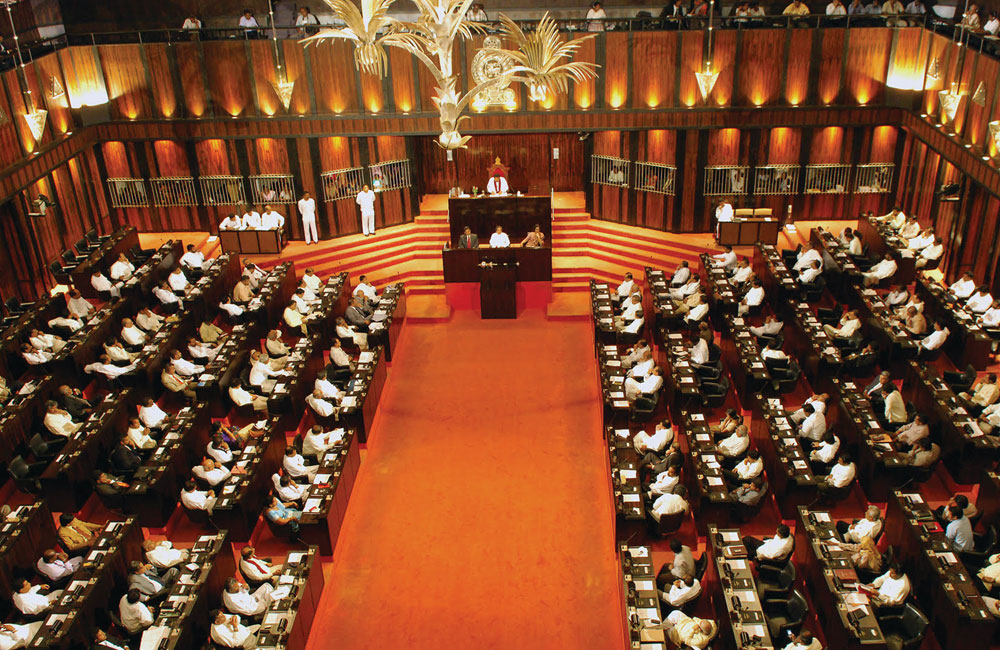
Next Parliamentary Sitting: September 23–26
The next session of Parliament is scheduled to be held from September 23 to 26, 2025.
Accordingly, on Tuesday, September 23, from 11:30 a.m. to 5:00 p.m., the second reading debate of the National Building Research Institute Bill will take place.
Subsequently, from 5:00 p.m. to 5:30 p.m., the House is scheduled to consider the motion to adjourn brought forward by the Opposition.

https://parliament.lk/en/news-en/view/4790?category=6
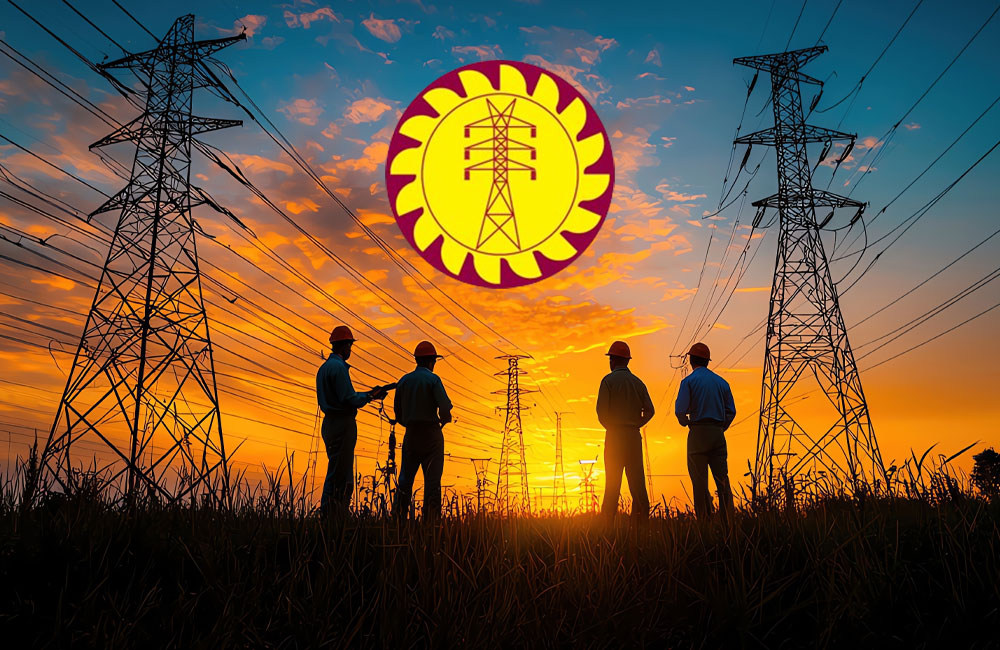
Workers at CEB Begin Sick Leave Protest Today
Employees of the Ceylon Electricity Board (CEB) have launched a sick leave campaign today (17) as part of their trade union action.
According to CEB Technical Engineers’ Union Chairman, Kosala Abeysinghe, this move signals the beginning of the second phase of their ongoing trade union activities.
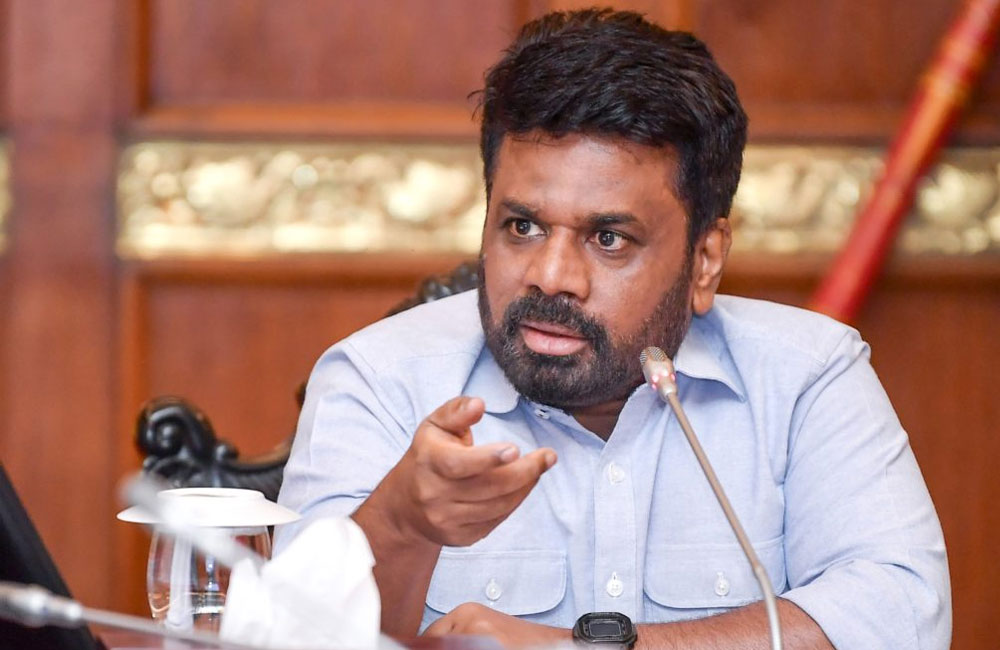
‘We aim to end the economic crisis through 2026 Budget’ – President
President Anura Kumara Dissanayake stated that the 2022–2023 economic crisis and the resulting social hardships were not random events, emphasizing that multiple major factors contributed to the situation.
Speaking at the inauguration ceremony for the resumption of construction of the Kadawatha–Mirigama section of the Central Expressway Project today (17), the President assured the public that the country will be developed in a manner that prevents the recurrence of such a crisis in Sri Lanka.
President Dissanayake emphasized that economic stability cannot be achieved through construction alone, and it is being pursued through multiple avenues.
He further stated that he aims to end the economic crisis through the 2026 budget, despite the widespread collapse of the economy and hardships faced by the people.
“During my visit to China last January, I requested the Chinese President to assist in restarting projects initiated with Chinese loan assistance. He gave special attention and agreed to provide the necessary support for resuming these stalled projects. I am very grateful for that,” the President said.
He added, “We also requested a special concessional loan scheme for this expressway section. The Chinese side informed us that no special loan schemes in dollars are available, but payments can be made in Yuan. Accordingly, the Chinese EXIM Bank has expressed willingness to provide this loan at an interest rate of 2.5%–3.5%.”
The President also highlighted his commitment to the rule of law, stating, “We have created the concept of equality before the law and are determined to build a stable state where every citizen is subject to it.”
He condemned organized crime, noting, “Certain groups have created an underground state that mirrors the official state, with access to weapons, police protection, and illegal support from political authorities. This underground state is involved in major social crimes such as shootings and drug trafficking. We will put an end to this.”
Acknowledging the efforts of law enforcement, he said, “Organized crime has caused significant societal damage. The police have accepted the challenge to suppress these groups, and I thank them for their commitment.”
On governance, the President stressed the importance of integrity in public service: “A political authority has been established that does not misappropriate public funds. We have identified individuals within the state machinery addicted to outdated practices. They have an opportunity to adapt to the new politics; otherwise, they will be removed. Public servants must respect every rupee of public money as if it were a corporate asset.”
He announced that Rs. 110 billion has been allocated for public sector salary increases in 2026, with Rs. 330 billion planned for 2027, emphasizing that public servants must provide services commensurate with these allocations.
Further initiatives include the import of 2,000 vehicles for government institutions this year and the complete digitalization of public service operations by next year.
Highlighting economic progress, the President stated, “Significant growth has been achieved in every sector, and this year’s revenue targets will be met. We expect an economic growth rate close to 5% by the end of the year, with foreign reserves increasing to $7 billion. We have already attracted $1 billion in direct investment, and many more projects are scheduled for completion.”
He underscored the country’s progress, saying, “A collapsed state is being transformed into a stable economy. This year marks a significant turning point in Sri Lanka’s history in terms of economy, social life, politics, and the rule of law.”
President Dissanayake also highlighted the importance of citizen development alongside political progress: “We need developed politicians and responsible citizens—not citizens who worship authority but those who fulfill their responsibilities. A nation cannot progress with citizens who fear politicians; it progresses through informed, engaged, and empathetic citizens. Our education reforms are designed to cultivate such citizens.”
Finally, he stressed accountability in public projects, noting, “Failure to complete projects on time causes great economic losses. Officials are responsible for ensuring the Central Expressway is completed on schedule, and the government will provide all necessary support.”
(adaderana.lk)
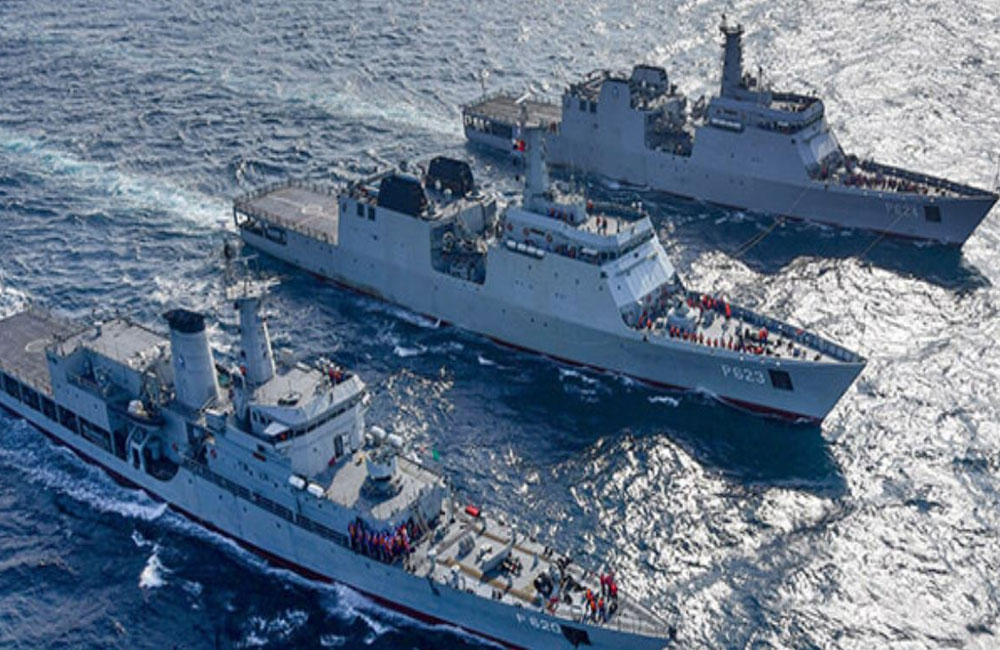
Japan To Fund Sri Lanka’s Naval Monitoring Upgrade With ¥500 Million Grant
The Government of Japan has agreed to provide a grant of 500 million Japanese yen to Sri Lanka under the Official Security Assistance Project, aimed at enhancing the surveillance, investigation, and monitoring capabilities of the Sri Lanka Navy.
As part of the initiative, drones will be provided for the investigation, surveillance, and monitoring activities of the Sri Lanka Navy under the Official Security Assistance Project to the Sri Lanka Navy.
The relevant exchange documents and agreements are scheduled to be signed by President Anura Kumara Dissanayake during his upcoming official state visit to Japan.
The Cabinet of Ministers has approved the proposal submitted by the President authorizing further action on the project.
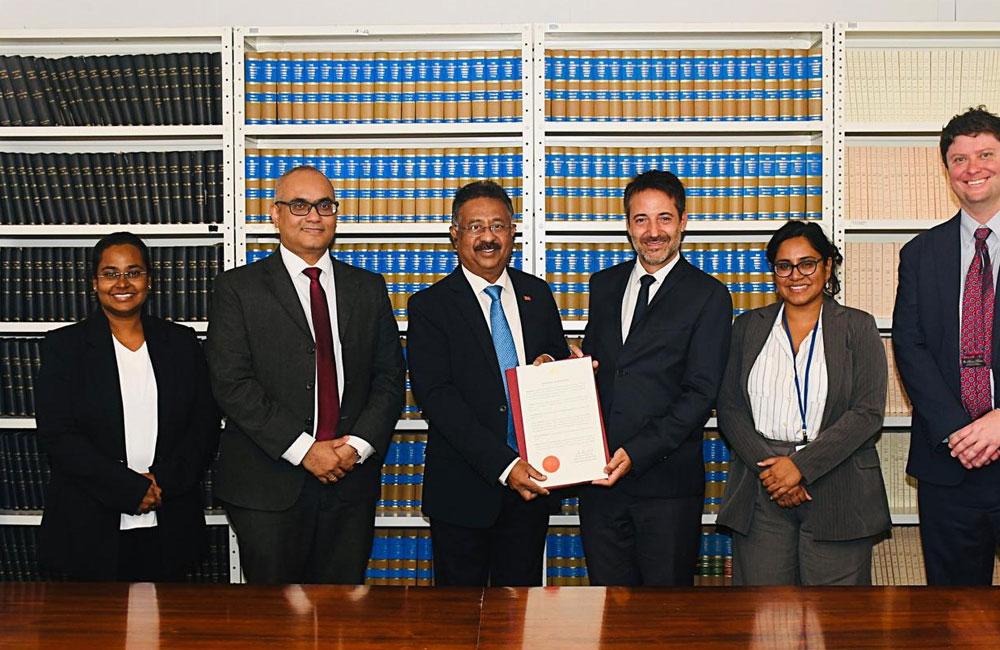
Sri Lanka becomes State Party to BBNJ Convention
Sri Lanka has officially ratified the United Nations agreement on the Conservation and Sustainable Use of Marine Biological Diversity of Areas Beyond National Jurisdiction (BBNJ Agreement) by depositing its instrument of ratification with the UN, becoming a State Party to the treaty.

According to the Ministry of Foreign Affairs, this step is another important milestone in Sri Lanka’s long history of leadership in ocean governance. Sri Lanka has already made a major contribution in this field through its role in drafting the 1982 UN Convention on the Law of the Sea (UNCLOS) and has been actively involved in the BBNJ negotiations from the very beginning.
As a developing country, Sri Lanka views this agreement as a way to ensure fair access to and protection of ocean resources for the benefit of all humanity. Ratifying the treaty will allow Sri Lanka to share in the benefits of resources found in areas beyond national borders, such as marine genetic resources (MGRs) and digital sequence information (DSI).
The agreement also emphasizes capacity building and technology transfer, which will help countries like Sri Lanka strengthen their ability to conserve and sustainably use marine biodiversity. In addition, it will give Sri Lanka the opportunity to work closely with other nations to protect ocean biodiversity, improve climate resilience, and support global Sustainable Development Goals.

Keheliya Among 12 Indicted Over Vaccine Scandal
The Colombo Permanent Trial-at-Bar High Court has officially indicted former Health Minister Keheliya Rambukwella along with 11 other individuals in connection with the distribution of unapproved antibody vaccines within Sri Lanka’s hospital system.
The indictments relate to a high-profile investigation into the alleged circulation of substandard or unauthorized vaccines, which were reportedly distributed without proper regulatory clearance, raising serious concerns about public health and safety.
The court scheduled the indictment proceedings on July 11.
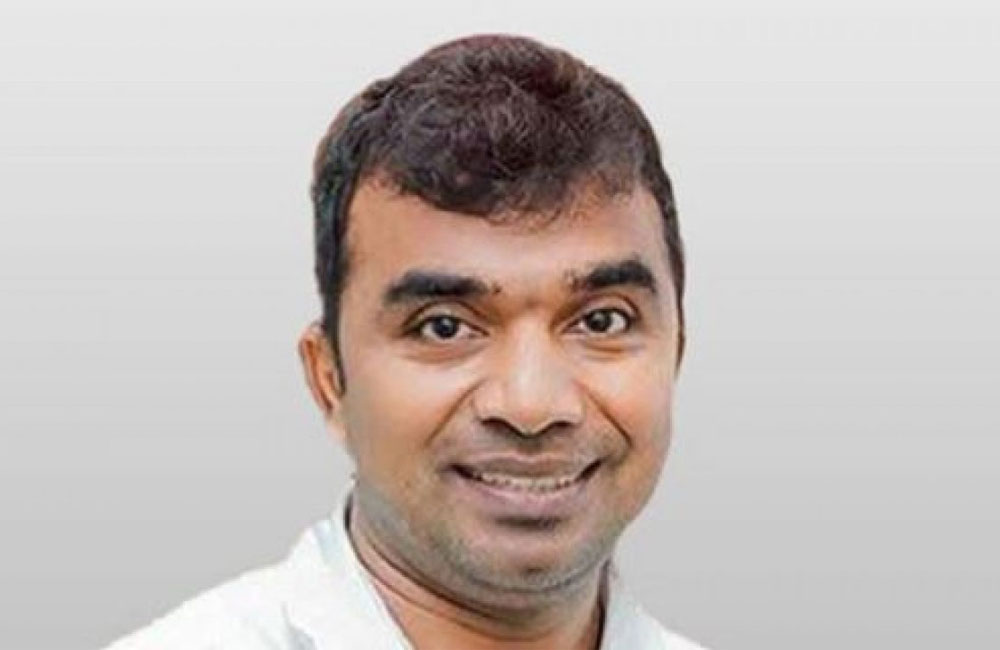
Sampath Manamperi surrenders to court
Sampath Manamperi, accused of hiding two containers of materials allegedly used to make the drug “Ice” and reportedly linked to underworld figure Kehelbaddara Padme, surrendered to the Walasmulla Magistrate’s Court today.
On September 15, Manamperi’s lawyer told the Court of Appeal that he was ready to surrender to the relevant Magistrate’s Court in connection with the containers found in Middeniya, which were suspected to contain chemicals for producing crystal methamphetamine (Ice).
Following this, the Court of Appeal instructed the Inspector General of Police (IGP) to ensure Manamperi’s safety during the surrender. Investigating officers were also told to follow this order.

Committee to Draft Laws Enabling Sri Lankans Abroad to Vote
Cabinet approval has been granted to appoint a committee comprising officials from several ministries to prepare the necessary legal amendments enabling Sri Lankans residing overseas to exercise their right to vote.
At present, under the existing five types of elections, there is no legal mechanism or procedure in place to facilitate voting by Sri Lankans abroad. The government has, however, taken note that many Asian countries such as India, Bangladesh, and the Philippines have already established legal frameworks allowing their expatriate citizens to cast their votes.
With the objective of safeguarding the voting rights of Sri Lankans living overseas, Cabinet approval was obtained for the proposal submitted by the Minister of Public Administration, Provincial Councils, and Local Government to appoint a committee. This committee, consisting of officials from the Election Commission, the Ministry of Foreign Affairs, the Ministry of Foreign Employment and Tourism, the Ministry of Public Administration, Provincial Councils and Local Government, as well as other relevant ministries and institutions, will be tasked with studying the necessary measures to amend the existing laws or draft new legislation.
Page 96 of 664